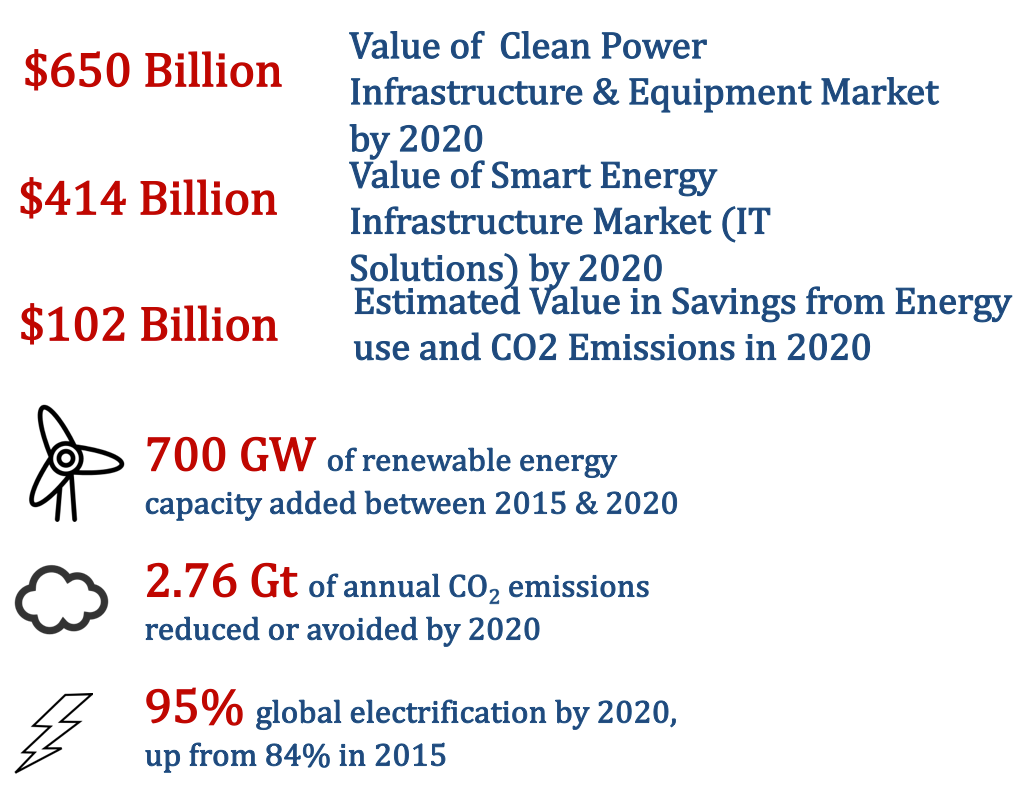Whitepaper highlights opportunities to transform the future of energy in the critical innovation areas of Decarbonisation, Decentralisation and Digitization.
A combination of new technology and business model innovation is transforming the way energy is generated, distributed, managed and stored and is delivering a fundamental change in the relationship between consumer and supplier. This is resulting in new opportunities to integrate the increasingly complex elements of the energy ecosystem, bringing together energy infrastructure with sophisticated IT. The future of energy will rely increasingly on digital intelligence and use of data analytics to drive efficiency from generation to consumption.
In our Social Innovation in Energy Whitepaper we discuss how the future of energy is all about integration: That means the integration of an increasingly complex and diverse range of generating assets as the global energy mix diversifies; and the integration and deployment of advanced IT and digital solutions to drive more efficient use of resources.
The 3 headline trends in the energy industry today (the 3 Ds – Decarbonisation, Decentralisation and Digitalisation) are driving a full scale disruption and transformation of the sector, meaning there are both challenges and opportunities ahead for companies playing in this space. Decarbonisation is driving growth in renewable energy and energy efficiency; Decentralisation is driving innovative new business models such as virtual power plants (VPPs), demand response, distributed generation and microgrids; and Digitalisation is increasing customers’ control over their energy usage to save money and raise energy efficiency.
However, in a world where global energy demand will grow by over 2% per year up to 2020 and a colossal total of 55% by 2040, further innovation is required. Over 1.2 billion people lack access to electricity, and air pollution causes in excess of 7 million deaths per year. As the demand for energy continues to grow, smarter and more society oriented innovation is required to overcome these increasing challenges of electrification, energy efficiency and de-carbonisation to facilitate continued economic growth and improve people’s quality of life.
"Social Innovation opportunities exist across the energy value chain from generation to consumption. It’s all about the convergence of energy infrastructure with digital technology and intelligence to capture data and drive innovation and efficiency"
Enabled by the digital transformation of the energy sector and powered by connectivity and convergence, we’ll see a future where Social Innovation facilitates the integration of higher levels of renewable energy, creates smarter and more reliable grids, and delivers customer-centric business models. We’ll see consumers – both commercial and residential – taking more control over their energy usage than ever before to manage their costs while also increasing convenience, efficiency and sustainability.
The opportunity to make a difference is huge. In monetary terms alone, the combined areas of Social Innovation impact show that an incredible $1.2 trillion is at stake annually by 2020 in terms of market opportunity and benefits to customers and society.

And this is without even trying to quantify some of the enormous benefits such as the social, environmental, health and economic improvements that will be felt around the world by addressing the need to bring electrification to the 1.2 billion people that currently lack access to electricity. Or the improvements in air quality, safety, reliability and security of energy supply that will enable both individuals and businesses to operate more efficiently and sustainably.
With energy infrastructure converging with advanced IT solutions, the players in the future energy world that will make the biggest impact are those that can bring innovation to all elements of the energy ecosystem from generation to point of use. That means using collaboration, data and intelligence to drive innovation and efficiency in areas such as portfolio optimisation, energy aggregation and trading.